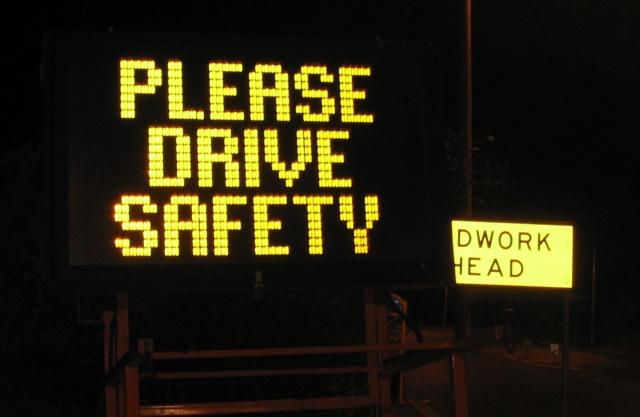To err is human. Do not regret your mistakes. Everybody has been committing mistakes in English. This language is complicated, sometimes even for native speakers. But this is not a reason to stop improving your skills. Below there are 20 common mistakes in the English language. Memorize them and polish your language easily without using grammar check software.
Affect or Effect?
This error always occurs in scientific papers. If you need to avoid mistakes in your lab report, for instance,
pay for lab reports at professional and trustworthy services.
Affect (verb) – to produce an effect, to act on; to express the mind or feeling; to attack (about illness)
Affect (noun) – emotional, observed emotional response or feeling
Effect (verb) – to cause a being of something, accomplish, put into operation
Effect (noun) – something that results when happened, a mood or feeling caused by someone or something, imitation of something real on television, radio, etc.
A website
dictionary.com tells that the difference between these two words is barely visible, but it is there anyway.
Anyways or Anyway?
An adverb ‘anyway’ is used to confirm or support an idea, to end a conversation or to change the subject and in questions to stress the wish to obtain the truth. It can be placed at a beginning or an end of a sentence. The word ‘anyways’ simply does not exist.
Usage of Present Perfect Tense
This tense can drive everyone crazy. Many people try to avoid it by any means. Mistakes connected with proper usage of PPT are usual. This tense is used when you need to describe something happened in the past and continuing into the future or for showing the time period taken by the happening.
Toward or Towards?
‘Toward’ can be used as an alternative to ‘towards’ in British English accent. It is an old adjective that refers to the future and attitude as well. In modern English ‘towards’ is more popular.
Who or Whom?
For the proper usage of these two words, you need to know how to identify parts of a sentence. Use ‘who’ when you are asking about an object: “Who must take me to the zoo?”. ‘Whom’ refers to the subject: ‘With whom will I go to the zoo?’.
I or Me?
This is another kind of sentence errors where you need to differ the subject and object of a sentence. ‘I’ refers to the object: “My friend and I wished him good luck.” ‘Me’ has to be an object in the sentence: “He wished my friend and me good luck.”
Its and It’s
‘Its’ is a possessive pronoun and it is used to indicate possession. ‘It’s’ is a minimized form of ‘it is.’ Try to substitute ‘it’s’ with ‘it is’ and check if the sentence still makes sense.
There or Their or They’re?
Here is the same situation: ‘there’ is an adverb used for indicating a place. ‘Their’ is a possessive form of a pronoun ‘they.’ ‘They’re’ is a minimized form of ‘they are.’ Substitution helps here as well.
Accept or Except?
Many people are confused by these words. ‘Accept’ is a verb, it means ‘to receive’ or ‘to take.’ ‘Except’ is a preposition that means ‘excluding, but.’ It can never follow subjects ‘I,’ ‘they,’ and ‘we.’
Could of or Could Have?
Many native speakers face this mistake. But it is very simple to guess which word is proper. ‘Could of’ is just a mishearing of ‘could have.’ This phrase does not exist.
Irregardless or Regardless?
The word ‘irregardless’ appeared in English a long time ago, but now it is not used. Always substitute it with a word ‘regardless.’
A or An?
Some people still do not know about the proper usage of these indefinite articles. The problem is tricky: you need to mind not only English phonetics but how they actually sound. For example, we say ‘a utopia’ because a sound /u/ is not long. At the same time, we say ‘an hour,’ because the consonant /h/ is silenced. You can use a famous online dictionary called
Merriam-Webster to check proper usage of the articles.
That or Who?
This is simple: use ‘who’ if you refer to a person and ‘that’ in case of an object. But it is acceptable to connect ‘that’ with persons sometimes. ‘Which’ is used to denote a group of objects.
Than or Then?
‘Than’ is used in comparison and connects two objects taking part in it. ‘Then’ is a word for indicating an indefinite time period.
Lose or Loose?
This is a very common mistake even for native speakers. Grammar rules say that ‘lose’ is a verb that refers to a situation of finished possession. ‘Loose’ is an adjective meaning something free, not bound, etc. These words cannot be substituted with each other.
Write or Right?
This is one of the most common mistakes. ‘Write’ is a verb that refers to making notes, conveying information into the written form. ‘Right’ is an adjective with meanings: opposite to left, proper.
Gone or Went?
‘Went’ is the past tense form of the verb ‘go’ and is used in the Past Tense. ‘Gone’ is its past participle and is used with Perfect tenses.
Here or Hear?
‘Hear’ is a verb referring to a feeling and possibility to accept sound information. ‘Here’ is an adverb with the meaning ‘in this spot.’
Apostrophe Usage
Memorize that apostrophe (‘) is never used for making plural forms but only for making possessive nouns and pronouns.





No comments:
Post a Comment